Hello parents and guardians! As we dive into a new school year, we want to ensure that everyone is on the same page regarding our homework policy. Clear expectations around homework not only help students stay organized but also foster a productive home learning environment. We invite you to read more to understand how our homework policy supports your child's educational journey and how you can get involved!

Clear objectives and expectations
A well-defined homework policy establishes clear objectives and expectations for students, parents, and educators. Effective communication about this policy promotes academic success, ensuring that students grasp essential learning concepts outside the classroom environment. Regular assignments, such as math problem sets or reading reflections, encourage independent study habits and reinforce curriculum standards. Furthermore, setting deadlines (e.g., weekly submissions due every Friday) fosters time management skills and accountability among students. Clear guidelines enable parents to support their children's learning journeys, creating an open dialogue between home and school that emphasizes the importance of education. Regular reviews of this policy, available at school meetings or through newsletters, can help maintain alignment among all parties involved.
Homework submission guidelines
Effective homework submission guidelines are essential for maintaining academic integrity and fostering student responsibility. Students must complete assignments by the due date, typically set as 11:59 PM local time on specified weekdays. Late submissions may incur penalties, such as a reduction in points, to encourage timely completion. All homework should adhere to specific formatting requirements, including font size, style, and page margins, outlined in the syllabus. Submissions are primarily done through the designated online platform, such as Google Classroom, ensuring that files are compatible (preferably PDF or DOCX formats) to facilitate easy grading. In cases of unavoidable circumstances, students should communicate with instructors via email (within 48 hours of the deadline) to discuss possible extensions or alternative arrangements. Clear adherence to these guidelines ensures a smoother academic process for all parties involved.
Consequences for non-compliance
Homework policies in educational institutions outline the expectations for students regarding assignments and their submission. Non-compliance with these policies can lead to several consequences, such as grade penalties, which may range from deduction of points to failing an assignment completely. Schools often encourage parental involvement, meaning that parents or guardians of students who repeatedly fail to submit homework may receive notifications about their child's performance. Additionally, schools may implement detention or make-up sessions to provide students with structured time for completing missed assignments. Communication about these consequences is usually documented in student handbooks, discussing both the importance of homework for reinforcing learning and the need for accountability in academic settings. These policies aim to promote responsibility, time management, and a strong work ethic among students.
Resources for student support
Effective homework policies are crucial for fostering student success. Schools in urban areas, such as New York City, often implement resources targeting various needs. Homework clubs encourage collaboration and peer learning, enhancing understanding of subjects like mathematics and science after hours. Online platforms, such as Khan Academy and Quizlet, provide supplemental materials, aiding students in revising challenging concepts. Additionally, local libraries often offer tutoring sessions led by volunteers, typically focused on reading and writing skills vital for academic achievement. These resources aim to create a comprehensive support system, ensuring students can navigate homework challenges effectively.
Contact information for queries
A clear homework policy can significantly enhance student learning experiences, including a structured approach to assignments and deadlines. For inquiries regarding the homework policy, parents and students can reach out to the school's main office at (555) 123-4567, where dedicated staff will provide assistance. Additionally, the principal, Mr. John Smith, available at john.smith@school.edu, can address any specific concerns related to academic expectations. The school's website, www.school.edu/homeworkpolicy, hosts detailed information about the policy including guidelines and resources for both students and parents, allowing for a comprehensive understanding of homework responsibilities. Regular communication ensures a collaborative educational environment reflecting shared goals for student success.

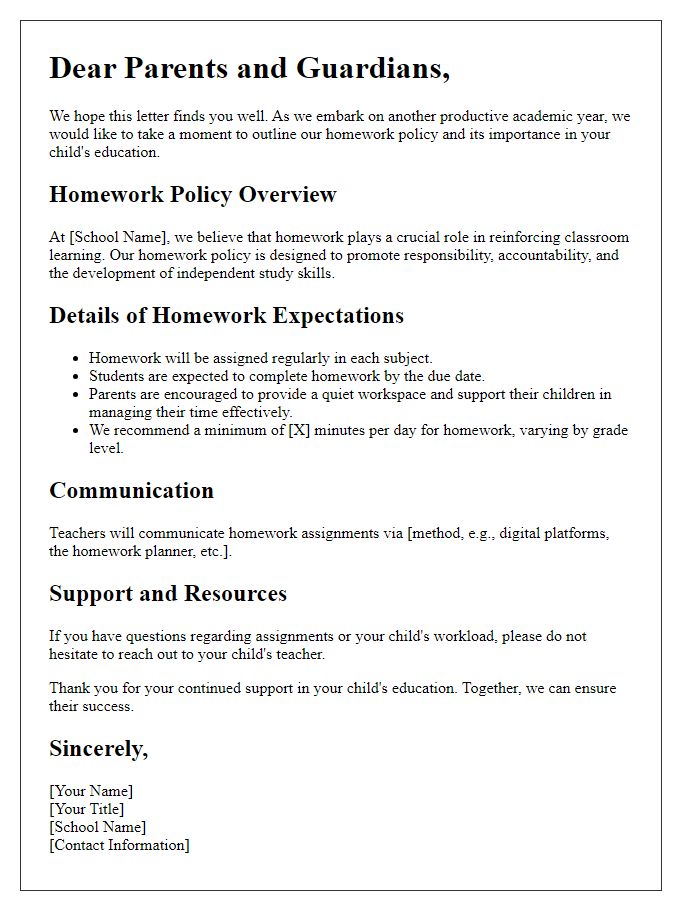
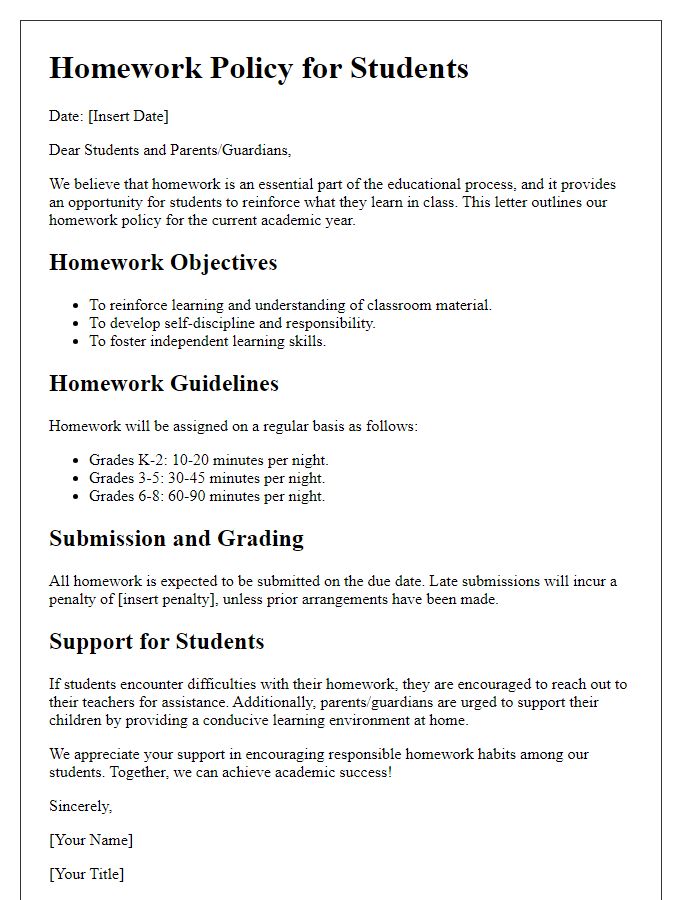
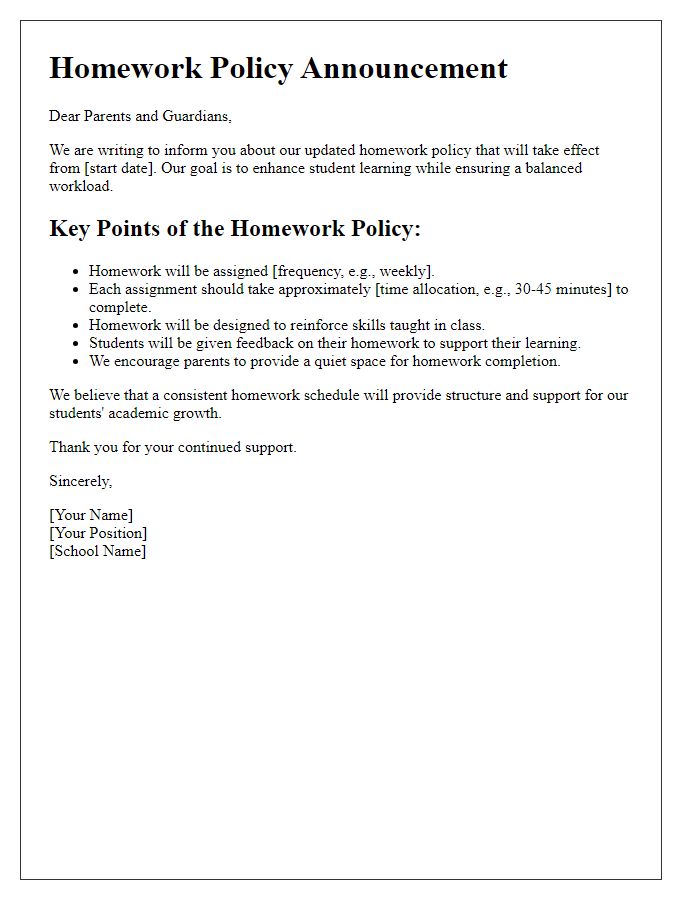
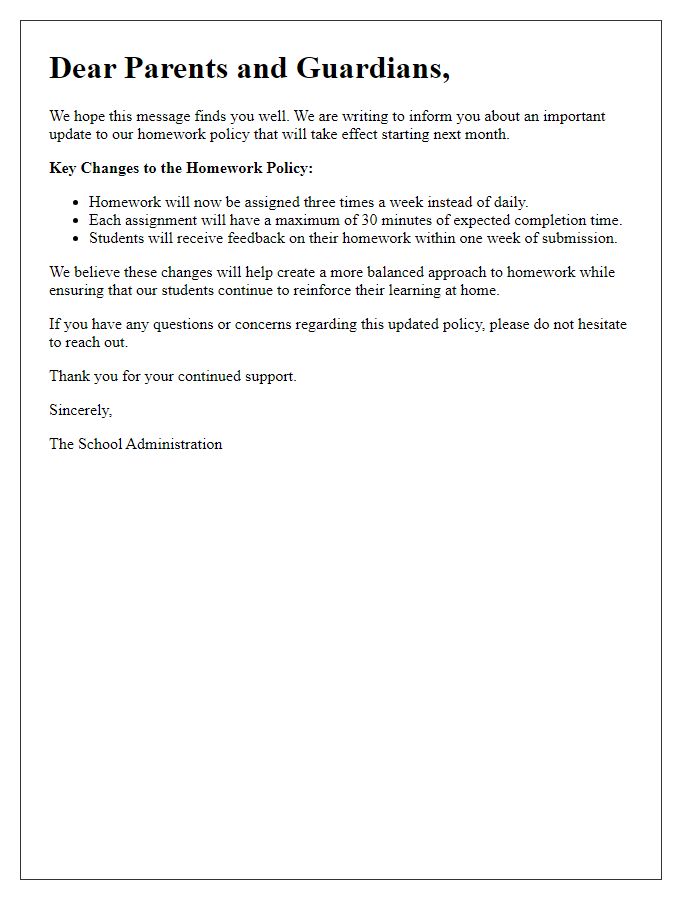
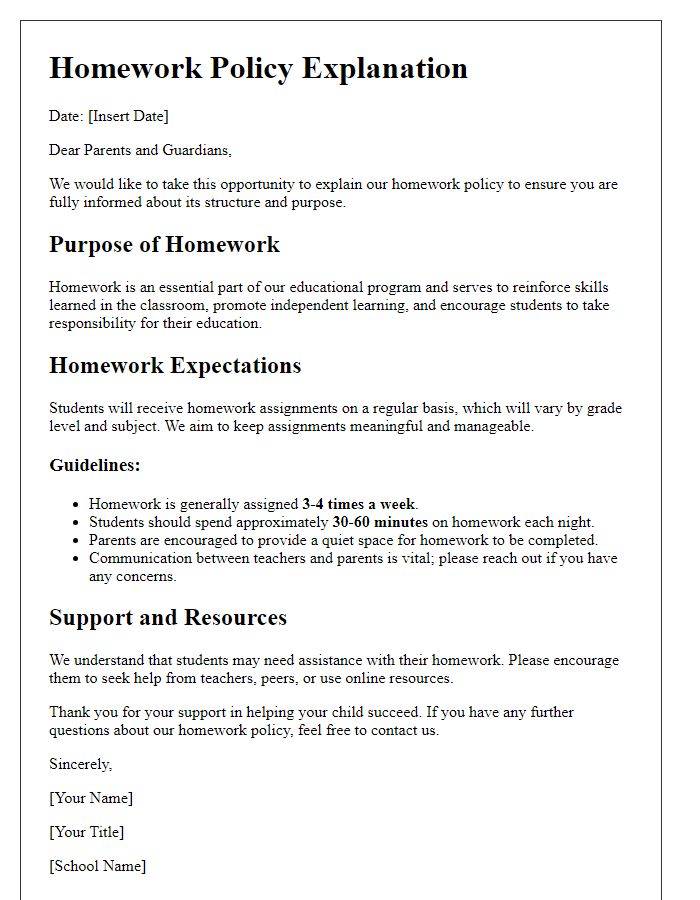
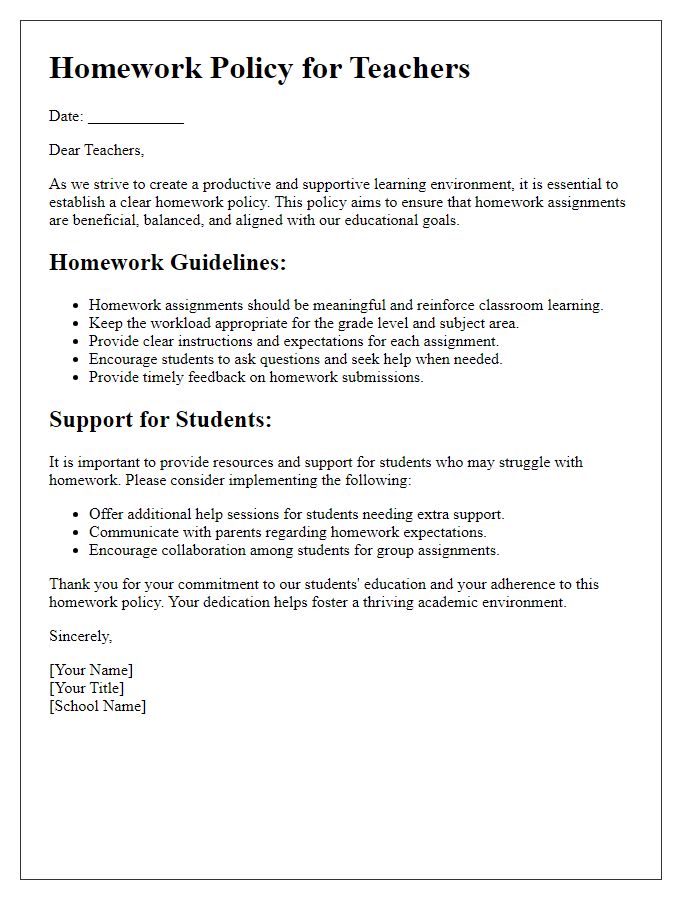
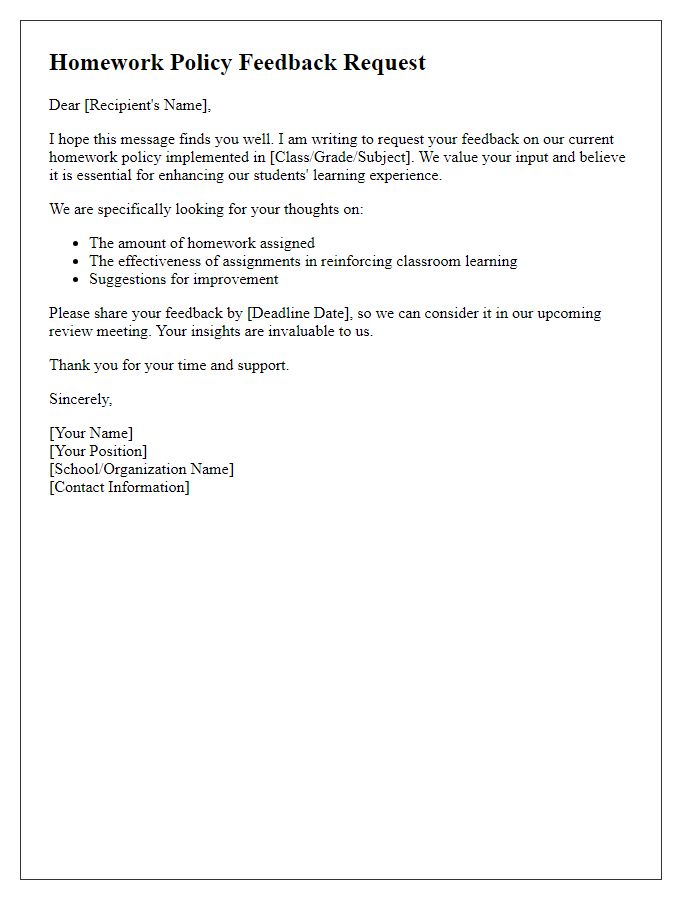
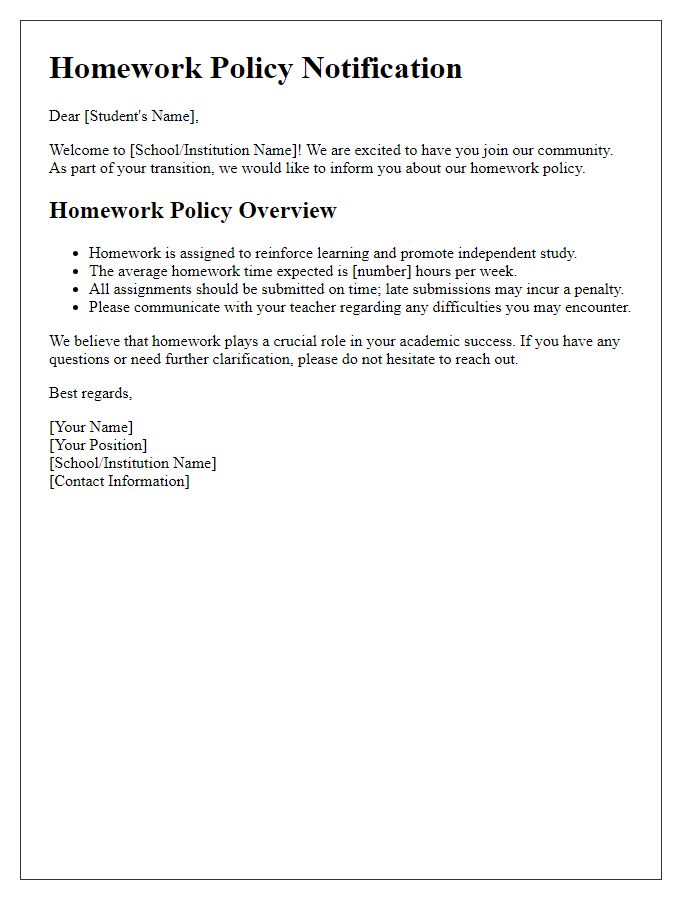
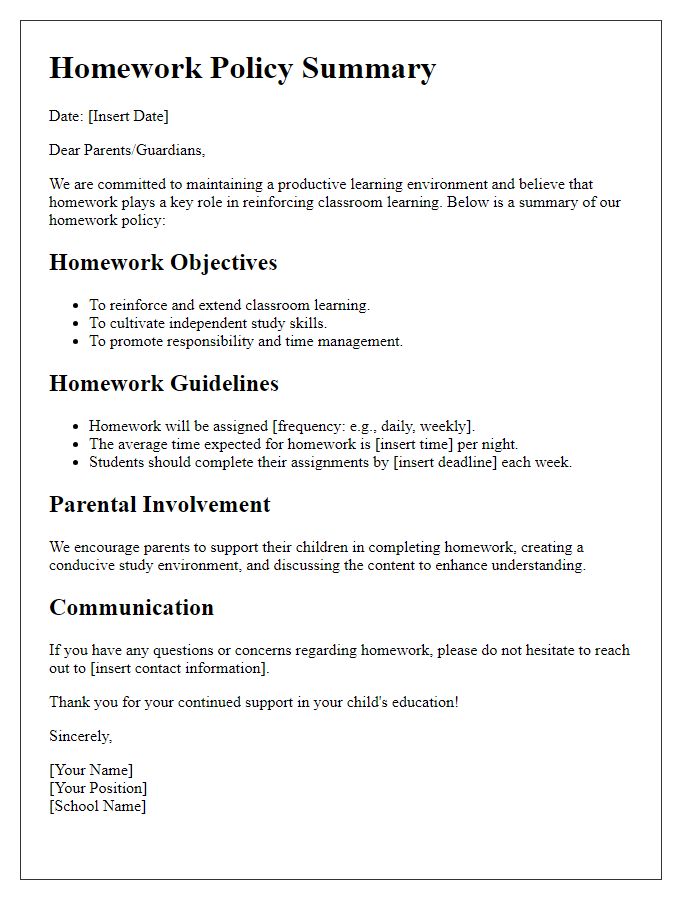
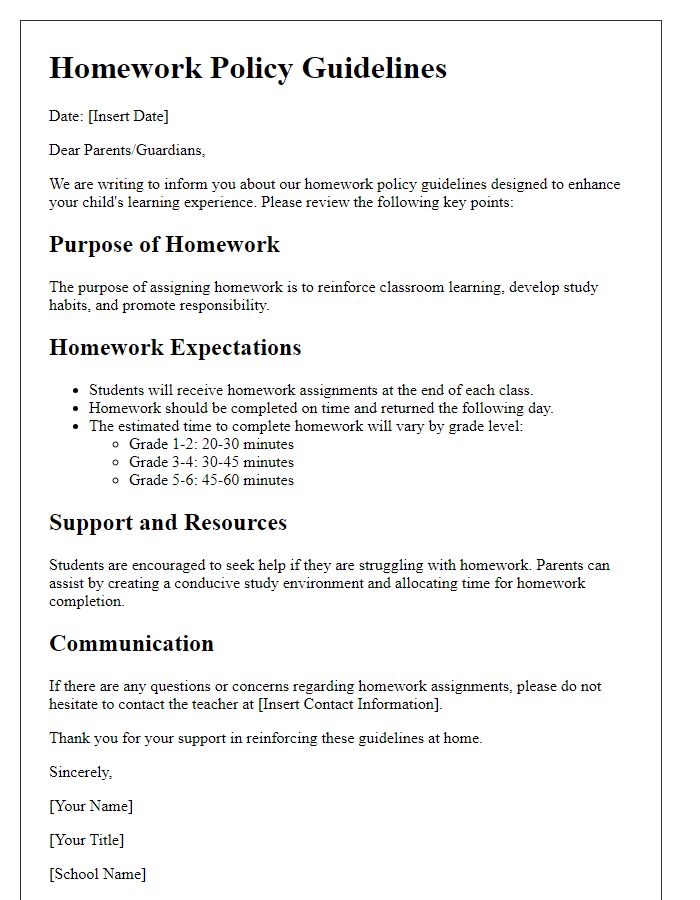


Comments